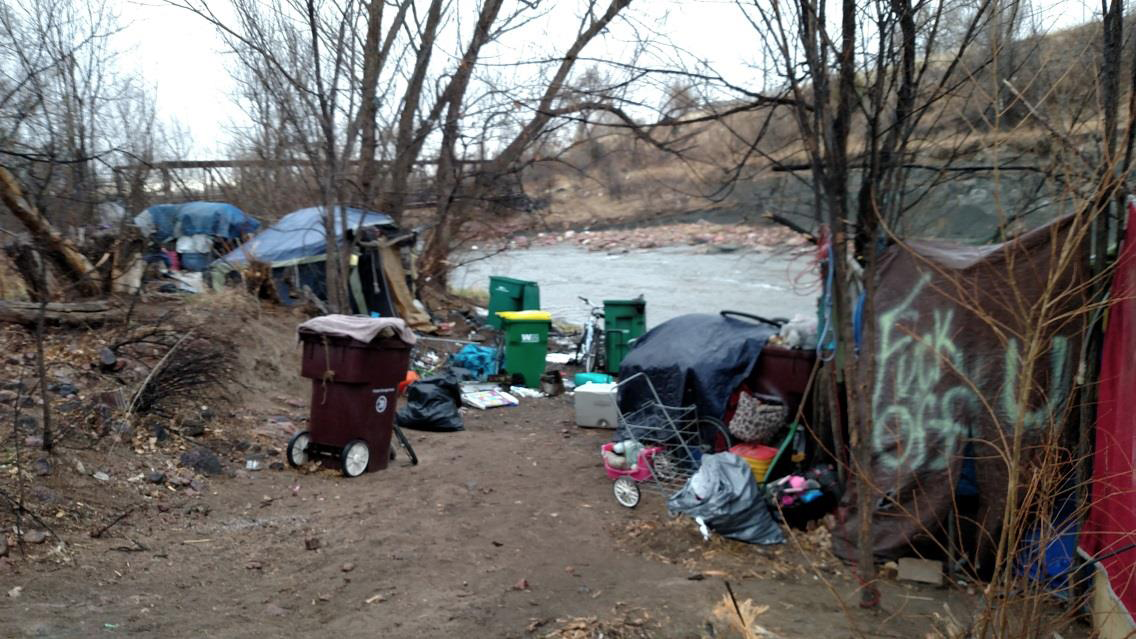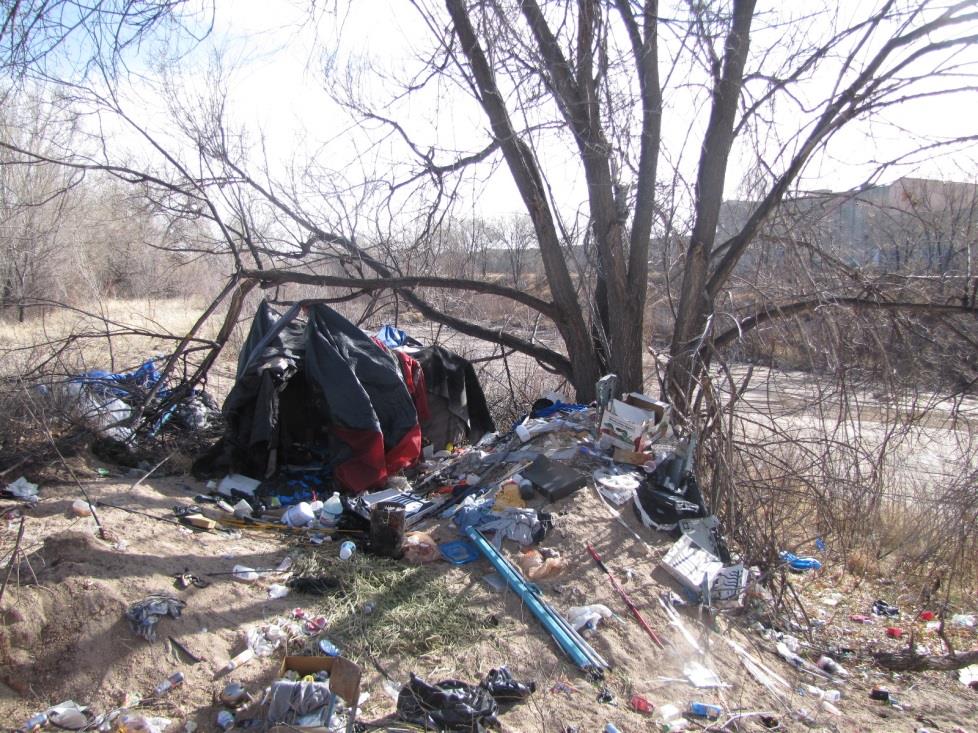Tons of trash, polluted water, flash floods that endanger the homeless and public safety convinced the Colorado Springs City Council to pass a controversial ban on camping near streams and waterways Tuesday. Introduced in February, the ordinance makes it an offense to camp within 100 feet of the bank of a stream.
The maximum penalty is $2500 and 189 days in jail. For juveniles the maximum penalty is $500 and a sentence to probation. The ordinance includes a mandatory warning by police before a summons is issued.
Homeless advocates see the ordinance as unfair to people with no other place to go. City staff sees it as an issue of public health and safety that cannot wait.
“There are many factors that are causing the unsafe waterways,” said Councilman Yolanda Avila. “It’s not just persons experiencing homelessness camping in those areas. I want to do something, I do, but not at the expense of incarcerating and penalizing persons experiencing homelessness.”

Councilman Don Knight responded, “The only time that those tickets are issued by our police department is when they are persistent, they are not going to move, or they moved and five minutes later they’re right back there doing the same thing that they’ve been warned about. So, your phobia about we’re going to come in and incarcerate all these people is unfounded. There will be displacement because it is not safe.”
Councilman David Geislinger said, “We need to recognize the fact that there is a lot of judgment against these residents of ours who are temporarily displaced and are in camps. I think we can become so concerned with gaining the wealth of a clean waterway that we forfeit the soul of who we are as a city.”
In response to Avila’s concerns Geislinger said, “The Mayor and the Chief Judge have been actively engaged in creating a diversion program for individuals charged under this where, as opposed to incarceration and penalties, referral to services to hopefully assist these people in getting back on their feet in order to get them the help that they need in order to return to a level of stability.”
Councilman Jill Gaebler said, “We have been so generous in trying to educate and support community members to move off areas where it’s not safe. The number one issue we heard from the community members is wanting to feel safe along our trails that are next to our creeks. I stand as one of those community members who cannot use many of my trails now because I do not feel safe in those corridors.”
Richard Mulledy, the Stormwater Enterprise Manager said that the inherent danger of allowing camping in riparian areas near streams due to the potential for flash flooding is an imminent public safety issue, particularly with the approaching monsoon season.
Council President Richard Skorman said, “The last thing I would want is for somebody to get hurt or killed because we did not act quickly to help remove people from the streams.”

Chief of Staff Jeff Greene said, “This is a very, very serious issue. Property owners, citizens are very concerned about what’s happening to our waterways.”
Councilman Bill Murray voiced concern that those displaced from the creeks will have no place to go if the ordinance goes into effect right away and asked for a 30-day delay in the implementation of the ordinance. “This is not a one step in the right direction, it’s hundred steps I think in the wrong direction,” Murray said.
Knight responded, “This has been worked on since February. How many more days are you going to ask for till you’re ready to do this? My count from the work session to the implementation is almost two months.”
Another area of substantial concern is water pollution. The Colorado Department of Public Health and the Environment reports that water quality in streams through the city do not meet state health standards, including excessive levels of e-coli bacteria. Mulledy concedes that e-coli contamination comes from more than one source, including animal and human feces, but argued that the human element is a major contributor that can be controlled.
He pointed out that the federal government prohibits camping in riparian areas near bodies of water. Distances vary but can be as much as 300 feet on Forest Service lands.
Trash and debris were highlighted in Mulledy’s presentation. “There is a lot of trash. The level of stuff that we have makes it very difficult to remove the level of trash and debris that is there,” he said.

Mulledy mentioned the city’s Adopt a Waterway program. “We have 67 adopters, that’s 73 different creek segments that covers 62 miles in our city right now. We have about 270 miles, so we have a way to go, but that’s a pretty significant portion of our city. Last year volunteer cleanups in those sections removed about 45,000 pounds, that’s 22 tons of trash and debris.”
“I think this ordinance will have a significant impact in reducing that trash and debris,” he continued.
The ordinance passed on a 6-2 vote with Murray and Avila dissenting and Councilman Andy Pico excused. It becomes effective July 23.


